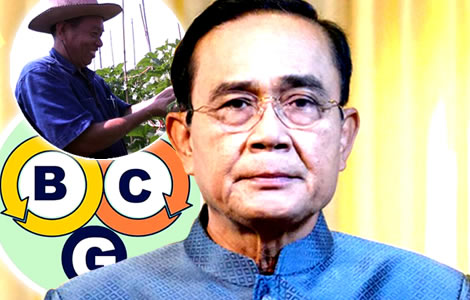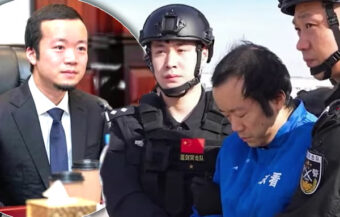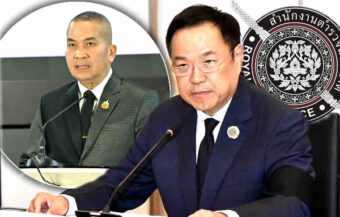New economic strategy appears to be more ‘green’ and talks about combating ‘overpopulation’ which suggests a policy change from the first junta government led by the PM and even the earliest months of this government when measures were announced to help boost the country’s birth rate. The new plan builds on the Thailand 4.0 strategy and aims to develop Thailand’s vast agricultural sector, widen and deepen the scope of tourism while encouraging a more sustainable and harmonious society as a result of such economic activity. The new blueprint is in keeping with the self-sufficiency economy promoted by the late King Bhumibol Adulyadej the Great.
The Thai Prime Minister Prayut Chan ocha unveiled another government strategy this week to guide the kingdom’s economy and society over the next five years as Thailand plots its route to escaping the middle-income trap to move towards a high-income economy over the next twenty years. The BCG strategy stands for Bio-economy, Circular economy and a Green economy in which Thailand’s economic planners hope to merge the best of its vast agricultural sector with both tourism and advanced technology to produce a sustainable economy that serves people and society best.

The government introduced a new economic and social development strategy this week which seeks to build on the much-vaunted Thailand 4.0 programme which has emphasised new technology as the key to high economic growth over the next twenty years.
The new 5-year strategy was introduced by Prime Minister Prayut Chan ocha after a meeting on Wednesday of the BCG committee chaired by him. The abbreviated term BCG stands for bio-economy, circular economy and green economy.
More added value for farming which remains Thailand’s biggest employer with 32% on the land
Bio-economy stands for plans being pursued by the government to create more added value in farming which still employs a significant proportion of the Thai population.
Official figures show it at just over 32% but it is thought to be even higher with part-time work and the return home of many unemployed Thais when they experience difficulty in the urban centres or lose their jobs in industry until they find another opportunity.
The new plan aims to use technology and innovation to add value to Thai crops, across the agricultural sector, to boost the return.
This is an urgent requirement with an ageing population in the fields. The strategy is to reverse what the government calls a current approach of ‘do more get less’ to a ‘do less get more’ one.
Plan echoes the late King’s key philosophy
The plan also addressed concerns about the protection of the environment and is in keeping with the sufficiency economy recipe laid out by King Bhumibol Adulyadej the Great.
As well as being a proponent of modernising Thailand and the Thai economy, the late King was also remembered as a philosopher who expounded this theory which is based on an economic philosophy that emphasises balance, stability and harmony.
Key to beating the middle-income trap
The new BCG initiative by the government, like the Thailand 4.0 programme, is aimed to help the kingdom escape the middle-income trap.
This is an economic term coined for countries like Thailand and other emerging economies such as Russia, Turkey, Brazil and South Africa which find themselves stuck as they become uncompetitive in respect of 2nd generation economic development.
This means that less developed economies with younger workforces are outcompeting Thailand for investment and export opportunities.
This includes countries such as Vietnam while Thailand’s ageing workforce and curtailment of investment mean that its capacity for economic growth is diminished. This, in turn, curbs the ability of the economy to rise to a high income and developed one.
It should be noted that developments since 2019 and the Covid-19 crisis are likely to challenge further this global economic model and see all countries move towards more local supply chains, higher use of robotics and technology together with a more holistic approach to national economic development in emerging and developed countries, moving forward.
Thailand must pick up GDP growth from 2023 to 2025 to become a high-income economy by 2037
Two weeks ago, Kiatipong Ariyapruchya, a top economist at the World Bank and a specialist in the Thai economy, warned that the kingdom must achieve 5% growth per annum at a minimum between 2023 and 2025 if it stands any chance of becoming a high-income economy by its adjusted target of 2037.
The kingdom is currently reaching the end of the second stage of economic development with an industrial base focused on manufacturing for export. This combined with foreign tourism makes up 70% of Thailand’s economy.
Tourism is part of this plan
The new BCG proposal aims at further developing tourism, not unlike initiatives pursued by the Tourism Authority of Thailand and the Tourism ministry up to the closure of the industry early last year.
The emphasis was on widening the scope of tourism to secondary cities and regions with new forms of tourism which blended with the country’s agricultural background.
Huge advances had been made in Thailand’s flight networks and connections within Asia and other parts of the world before the virus emergency shut everything down leaving confusion and insecurity in its wake.
Only 17% of Thai workers are employed in the industrial sector on relatively low pay while 7% work in the service sector.
Thailand also had a booming and overlapping black market economy which has been also severely damaged by the Covid-19 situation
Circular economy, recycling materials and resources
The second part of the BCG strategy is C and this stands for the circular economy.
This is concerned with the use of the abundance of raw materials in Thailand from rubber to coconuts and many other materials used in manufacturing products at different stages or life cycles of production. The circular concept means recycling scrap and waste materials to create added value.
An example of this can be seen from Marseilles in southern France where fish skins are recycled from the waste collected from luxury restaurants into expensive and premium leather products after being processed through purification and tannery machines.
This is an example of the use of technology and innovation to take raw materials and recycle them.
The G, in the abbreviated term, stands for green and Thailand’s efforts to protect its environment and ensure that the country’s economy is sustainable into the future.
Sharing economy such as car-sharing apps
An additional element to the strategy includes the development and use of technology such as apps in the private transport sector like car-sharing services. The concept is that, in this way, people can be provided with solutions to meet their needs at a lower cost by providing an easier and more flexible way.
The combination of electric cars and car-sharing apps may be a solution that could work in Bangkok if developed, eliminating the need to purchase and finance expensive petroleum-powered cars as well as alleviating congestion on the roads and reducing accident rates.
New green credentials speak of the challenge of overpopulation. This appears to be a policy shift
The wording of this new strategy also identifies as part of the government’s mission, working to tackle overpopulation which is identified as a key challenge as well as the degradation of the environment and waste of resources.
The policy document is certainly a step towards a greener more environmentally aware approach.
This appears to be a contradiction of the policy pursued by the former Minister of Higher Education and Science Suvit Maesincee who, in 2019, introduced a scheme from 2020 to assist Thai mothers and families to rear young children.
Indeed, a theme of the first junta government led by Prime Minister Prayut Chan ocha, was to work to boost Thailand’s birth rate.
Focus on the Silver economy pertinent to Thailand
Another element of the BCG proposal is the Silver economy which means that efforts will be made to adjust and guide these developments so that they empower and help the elderly lead independent and rewarding lives in Thailand.
The rising challenge of caring for an older population, now in view, without an extensive social welfare system may be overcome by such an approach.
Thailand has seen, in the last decades, a growing proportion of its elderly continue to work beyond 60. This commitment helps to keep the economy moving forward and makes it more competitive.
This is an initiative that would support that goal. A report from 2016 showed that, at that point, 40% of Thai people over 60 were active in the workforce with 7% of those over 80 still employed.
On a more positive note, 79% of elderly people over 60 in Thailand receive some financial support from their children but, at the same time, 63% rely primarily on their own savings and an ability to earn money themselves to get by.
Join the Thai News forum, follow Thai Examiner on Facebook here
Receive all our stories as they come out on Telegram here
Further reading:
Thailand to launch a moon space programme to boost efforts to become a high-income economy
Finance Minister says economy must pivot away from tourism with a switch to S-Curve industries
Strengthening baht predicted as investors bet on a reopening of Thailand to mass tourism in 2021
World’s biggest free trade deal just signed will be a huge boost for the Thai economy and exports
RCEP deal agreed as India opts out – busy Bangkok ASEAN summit concludes on a low key
Chinese FM to visit Thailand in a Covid battered world of raised tensions and potential conflict
Prime Minister indicates that the cabinet reshuffle will be complete very shortly with no problem
Thailand’s economy has become dependent on government expenditure to stay above water
Thailand and US aim for a new more ‘proactive’ trading relationship as ambassador meets Prayuth
Rice price spike but drought conditions to recede – security concern for the Mekong river
US suspension of Thai preferential trade partner status part of Trump’s ongoing trade war


















